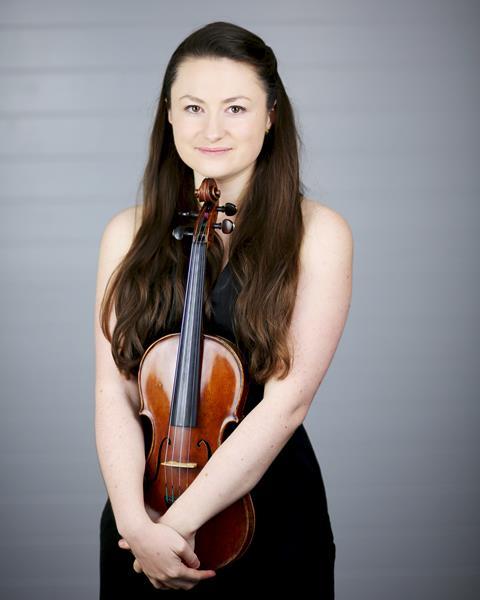The key to learning an instrument as an adult is to emphasise the love of music making and to work in small, manageable steps, shares violinist Laura Rickard

I usually have around ten adults in my class at any one time. Many have been with me for a long time, but then there are also other students that drop in sporadically, normally when they have something specific they’d like help with.
My adult students tend to be from a wide range of ages: from university students that are studying other subjects other than music to retirees, I think the oldest I’ve had in my class was in his eighties! They represent a huge range of abilities, some have studied seriously as children a few at conservatoire level.
Many are coming back to violin after a while of not playing, others have kept it up quite seriously and are actively playing in amateur orchestras and chamber music. I have huge respect for adults that decide to start learning from scratch, I think it takes a lot of courage, but much like learning a language as an adult, a huge amount is possible with determination.
Read: Adult beginner cello: Never too late to learn
Listen: The Strad Podcast Episode #46: Billy Tobenkin on starting the cello at 25
Adults come with a slightly different frame of mind than typical younger students. Often they are more determined and the motivation comes from within rather than from external pressures, which is a wonderful thing. I really appreciate that adult amateurs have consciously made the choice to spend their own money on lessons! I often find adults come to a lesson with shopping list of things they’d like to improve, or repertoire they’d like to learn, so it’s important to be quite quick on your feet so you can adapt your lesson ideas and gently guide students.
They’re often very interested in dissecting the hows and whys of what we do, often more so than conservatoire students, which is something I love. The challenge comes when the understanding comes very quickly, but it sometimes takes the body a bit longer to learn new things, develop muscles and find more flexibility physically. Adults tend to be much more aware of how they sound than children and are more afraid to make ’bad’ sounds. I’ve had adults ask ’but why doesn’t it sound like Perlman?!’ We can all dream…
Teaching adults can also encompass a great deal of other things other than just the music and some students will want a greater variety of things from their teacher. Some are using lessons as an escape from home/work life, some want to be able to play with someone with more experience or want to chat things through with someone. I think it’s important to respect that.
I find that my most successful adult students, very similar to any other student, are ones that manage to get their violin out most days, even if it’s just for ten minutes. The famous Heifetz quote comes to mind: ’If I don’t practise one day, I know it; two days, the critics know it; three days, the public knows it.’
It’s also important that students remember why they are doing it in the first place, normally because they love music and want to improve. I love it if students bring chamber music partners to lessons or join an orchestra or attend a holiday course to have fun! In the same vein, perfectionism has its place sometimes in life, but in the end amateur music making does not need to be perfect, it’s a wonderful thing to explore the great repertoire and play just for the pleasure.
My top piece of advice for an adult starting a new instrument: patience is key! Learning an instrument is difficult, but if you visualise it as thousands of little easy steps it’s not so daunting. Practise little and often while you develop the muscles that are necessary; a little every day goes a long way.
Violinist Laura Rickard was appointed Meaker fellow in violin at the Royal Academy of Music in 2020. She is the artistic director of the Romsey Chamber Music Festival.











































1 Readers' comment